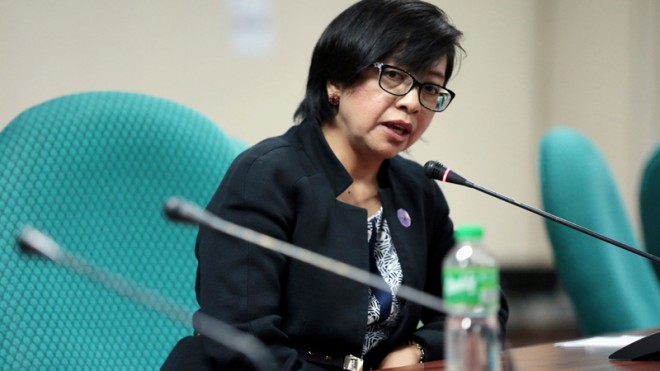Gov’t peace panel lauds Congress bills on Bangsamoro
The government peace panel that negotiated with the Moro Islamic Liberation Front (MILF) has lauded both the Senate committee on local government and the House ad hoc panel for retaining the proposed parliamentary form of government in the Bangsamoro Basic Law (BBL).
Miriam Coronel-Ferrer on Monday cited the two panels for “retaining the provisions establishing a parliamentary form of government in the region, seeing it as crucial to the reforms we hope to put in place in the Bangsamoro.”
The Senate committee is chaired by Sen. Ferdinand Marcos Jr.; Cagayan de Oro Rep. Rufus Rodriguez heads the House panel.
In a statement, Ferrer called the parliamentary system the “most important structural change being introduced,” noting that “it’s a shift well within the powers of Congress to grant since the Constitution left it up to Congress to define the structure of government in the autonomous region.”
However, she pointed out that “while the House version retained the original proposal in the BBL, the Senate’s substitute bill radically altered the allocation of seats in the proposed Bangsamoro legislature.”
Article continues after this advertisementThe original proposal allocated 24 seats in the Bangsamoro parliament to parliamentary districts, 30 to party-list groups and the remaining six reserved for non-Moro indigenous peoples, settler communities and women, among others.
Article continues after this advertisementBut in the Senate version submitted by Marcos, “district representation was jacked up to 40 seats, reserved seats were increased to 12 and only eight seats were allocated for party-lists,” Ferrer said.
She warned that “lopsided representation in favor of district representatives, presumably elected on the basis of plurality or highest number of votes, will perpetuate personalistic politics, clan dynasties and weak political parties.”
“On the other hand, we believe that allocating more seats to regional political parties and sectoral representatives would encourage the practice and development of a political culture in the region that is based on broad-based political parties with defined programs of governance competing in free and fair elections,” she asserted.
Ferrer appealed to Marcos and the other senators to “seriously consider the seat allocations in the regional parliament in order to ensure that new entrants in the electoral arena, such as the erstwhile Moro liberation fronts, women’s groups, environmental advocates and indigenous peoples will stand a good chance to win seats.”
“Our goal with this parliamentary form of government as envisioned in the original BBL is to ensure inclusive and more participatory governance” she emphasized.
According to Ferrer, “allocating a large majority of the seats in the Bangsamoro parliament for parties and marginalized sectors will encourage politics based on principles and not personalities.”
“It will empower the different segments of the people in the Bangsamoro,” she stressed.
The government peace panel, she added, was “ready to provide technical assistance to the Senate when floor debates start on the Bangsamoro bill to help provide insights on the intent of the proposed provisions in the original BBL, especially the rationale behind the proposed parliamentary form of government for the region.”
RELATED STORIES
Group says Marcos’ BBL bill strengthens dynastic rule in South
Marcos’ substitute bill to make BBL even less than ARMM — Moro consultant
